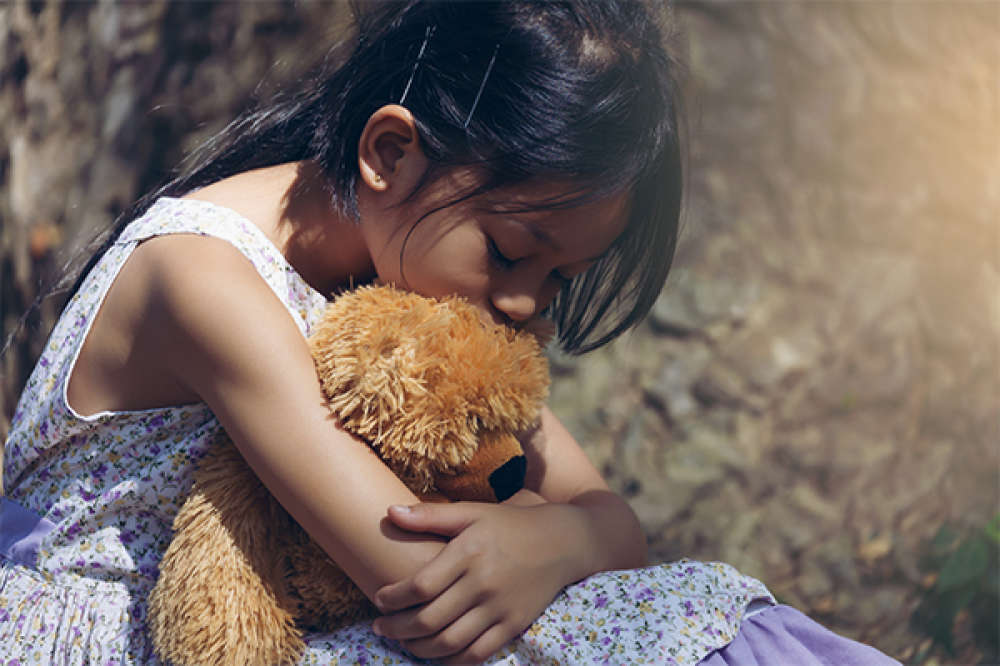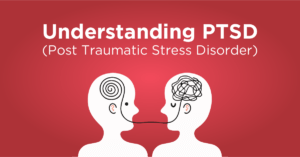When you are coping with PTSD from parents, it can be difficult to know where to turn. This is a complex and challenging issue, and it can be hard to find the right information and support. In this blog post, we will provide you with some essential information about PTSD from parents. We will also discuss ways to get help and overcome the disorder. If you are struggling with PTSD related to your parents, please don’t hesitate to reach out for support.
Contents
What Is PTSD?
Stress is a type of anxiety that occurs in reaction to an event or series of events perceived as threatening or distressing. Post-Traumatic Stress Disorder (PTSD), is a mental health condition that can occur after experiencing or witnessing a traumatic event.
PTSD from parents is a type of post-traumatic stress disorder (PTSD) that can develop in children and adolescents who have witnessed or experienced traumatic events involving their parents. It includes several emotional and behavioral problems, including anxiety, depression, aggression, and difficulty trusting others.
Symptoms
Trauma symptoms can manifest in many ways, including physically, emotionally, cognitively, and behaviorally. The symptoms have the potential to influence one’s daily life as well as interactions with others. Most kids and teens with PTSD will:
- experience recurring disturbing images or thoughts of the trauma.
- witness recurring nightmares or difficulty sleeping.
- avoid events or objects that bring up unwanted memories.
- get easily startled, frightened, or nervous
- be unable to recall everything that occurred
- feel more irritable, melancholy, unhappy, or apathetic than usual
Apart from all signs mentioned above, children may display more fearful and regressive behaviors frequently. They may re-enact the trauma through play.
How Do Children Develop PTSD From Parents? 
When children are exposed to PTSD from parents, it can cause them to feel scared, helpless, and alone. If left untreated, it can have a lasting effect on children and may even lead to problems in adulthood. There are many things that parents can do that may lead to their children developing PTSD.
Ignoring Their Needs
One of the most common is neglecting their child’s emotional needs. This can happen when parents are too busy with work or other commitments to spend time with their children. It can also happen when parents are emotionally unavailable due to mental health issues or substance abuse problems.
Exposing Them To Violence
Another way that parents can contribute to their child’s PTSD is by exposing them to violence. This can include physical, emotional, or sexual abuse. It can also include witnessing violence in the home or community. Children who are exposed to violence are more likely to develop PTSD than those who are not.
Setting Unrealistic Goals For Them
Another way is by having unrealistic expectations of their child. This can occur when parents put too much pressure on their children to succeed or be perfect. It can also happen when parents expect their child to behave in a certain way or meet certain standards that are not developmentally appropriate. When children experience any of these things, it can lead to them feeling scared, alone, and helpless. If left untreated, PTSD can have a lasting effect on children and may even lead to problems in adulthood.
Not Having Proper Faith
Furthermore, parents can also help their children develop PTSD by not believing in them. This can happen when parents dismiss their child’s feelings or experiences. It can also occur when parents gaslight their child, which is a form of emotional abuse that causes the child to d their memories and perceptions. When any of these things happen, it can lead to children feeling scared, alone, and helpless. If left untreated, PTSD can have a lasting effect on children and may even lead to problems in adulthood.
Talking Abruptly About The Trauma
Lastly, parents may also inadvertently help their children develop PTSD by talking about the trauma in a way that is not helpful. This can happen when parents downplay the severity of the trauma or make jokes about it. It can also occur when parents pressure their children to talk about the trauma before they are ready. When any of these things happen, it can lead to children feeling scared, alone, and helpless.
Side Effects
Children have to face a lot of negative consequences once they develop PTSD from their parents. They may witness enormous changes in:
Imbalanced Emotions
Children are frequently exposed to potent emotional reactions and behaviors displayed by their parents. This might cause a youngster to be scared or bewildered. A child may also begin to fear for his or her parent’s well-being and become sad. Additionally, watching a parent deal with a problem can have an impact on how well a kid is able to communicate feelings appropriately.
Children who are affected by PTSD from parents often struggle with emotional regulation. This can manifest in a number of ways, such as feeling constantly on edge or feeling overwhelmed by emotions. Children may also have difficulty sleeping, concentrating, or communicating their feelings. In some cases, children may act out through aggressive or destructive behavior. It is important to remember that each child will respond to PTSD in their own unique way and that there is no “right” or “wrong” way to feel.
Cessation Of Development
A parent is a role model and an instructor. In addition to parental modeling, ineffective coping methods might have trouble with problem-solving skills. They may feel emotionally numb, unresponsive, and disconnected from their family members and children. As a result, bonding and attachment to a kid for a parent might be difficult. This can limit the growth of your child. A parent that avoids circumstances or people due to their high level of distress may also cause their child to miss out on experiences and chances. This problem results in the degraded development of a child which has a long-lasting impact on his personal and professional life ahead.
Abrupt Behavior
Children may want to assume a role or responsibility that is not theirs to defend their parents and take on duty or responsibility that does not belong to them. Children’s emotional distress might have an impact on their academic performance at school. Their rage and bewilderment might be the source of bad behavior seen at school or home.
Poor Interpersonal Relation
When children develop PTSD from their parents, it can have a profound effect on their interpersonal relations. PTSD can cause children to feel isolated and alone, as well as fearful and mistrustful of others. This can make it difficult for them to form and maintain healthy relationships with others.
Additionally, PTSD can lead to problems with communication and intimacy, which can further strain relationships. Unwanted physical contact with parents, peers, or strangers in the home can have a long-term negative impact on a youngster’s relationships. These patterns may be seen in childhood and well into adulthood. Children may fear physical contact with others which include shaking hands, being touched by another person, or even being in the same room with someone. They often feel like they are living in a constant state of fear and anxiety. This happens because PTSD has taken away their trust in people which can be very damaging to their interpersonal relations.
Cognitive Changes
Even if you haven’t experienced trauma in the past, parenting is difficult. Trauma symptoms cause parents to be more irritable and have disrupted sleep habits. As a consequence, parenting actions can become harsher or less engaged. Parents may react quickly to their children’s mistakes, withdraw from them, or coddle them. Children might believe that their parent doesn’t want to play with them, doesn’t love them, or gets the wrong idea and doesn’t comprehend what’s going on.
PTSD can lead to several cognitive changes in children. These can include problems with memory and concentration, as well as difficulty processing information. PTSD can also make it hard for children to express their thoughts and emotions, which can impact their ability to socialize and form attachments. In severe cases, PTSD can cause children to dissociate from reality, which can be extremely distressing and disruptive. PTSD is a serious condition that can have a profound effect on children’s development and well-being.
Solutions
Fortunately, you can get the cure for your children if they are suffering from PTSD through you. The right strategy and consistency are the key factors in bringing positive results. Some useful types of remedies are:
How Parents Can Help?
PTSD can be a difficult road for a child, but with the love and support of their parents, they can begin to heal and move on from the trauma. The disorder can have a lasting impact on children if it’s not dealt with properly. As a parent, you play an important role in helping your child through this tough time. Here are some things you can do:
- Be there for them. One of the most important things you can do is simply be there for your child. They need to know that you love them and support them no matter what. Just being there listening and providing comfort to them can make a world of difference.
- Help your kids feel secure. Spare your time for them. they may require more attention, comfort, and care from you. Relax your child by encouraging them to take several measured breaths with you. Count to 3 while breathing in and 5 while breathing out.
- Make time for activities you enjoy doing together. Trauma might make it more difficult to experience the pleasant emotions that help kids recharge on their own. Play, laugh, go outdoors, create music or art, and cook are all great ways to unwind. These hobbies may help your child cope with stress and strengthen his or her resilience.
- Reassure your kid. Tell them that they will survive this difficult experience. And that you are there to assist them. Let your child’s doctor know what your child has been through.
- If your child has had a traumatic experience, tell his or her teacher. Kids with PTSD are more likely to have difficulties concentrating on schoolwork. Request that your child be given additional assistance or more time to work if he or she needs it for a while.
How Therapist Can Help?
 Parents can make a referral to a mental health professional (for example, a psychiatrist, psychologist, or mental health counselor that specializes in trauma treatment).
Parents can make a referral to a mental health professional (for example, a psychiatrist, psychologist, or mental health counselor that specializes in trauma treatment).
PTSD from parents can be very difficult to overcome. Many people feel like they have to keep their PTSD a secret, which can make it even harder to deal with. However, it’s wrong as with any problem we face in our lives, we should reach out for help. Keeping it a secret only makes it worse. Try to find a solution and face PTSD head-on.
A therapist can help you work through your PTSD and start to heal the wounds that your parents may have left behind. He may work through your PTSD by providing a safe and supportive environment. Therapy can also provide coping and problem-solving skills to help you deal with PTSD in your day-to-day life. Therapists may use the following types:
- Cognitive-Behavioral Therapy (CBT): Cognitive behavioral therapy (CBT) can help you to identify and change the negative thoughts and beliefs that are keeping you trapped in your PTSD.
- Exposure Therapy: Exposure therapy can help you to face your fears and start to work through the trauma that your PTSD is based on.
- Eye Movement Desensitization And Reprocessing (EMDR): Eye movement desensitization and reprocessing (EMDR) can help you to process and heal the memories that are causing your PTSD.
- Trauma-Focused Cognitive-Behavioral Therapy (TF-CBT): Trauma-focused cognitive behavioral therapy (TF-CBT) can help you to understand and work through the trauma that your parents may have caused.
All of these therapies can be incredibly helpful in working through PTSD, but it is important to find a therapist who specializes in treating PTSD. They will be able to tailor their treatment plan to your specific needs and help you to start on the path to healing.
How Medications Can Help?
PTSD is a serious condition that can be debilitating for those who suffer from it. While there are many different treatments available, not all of them are effective for everyone. Medications can be an important part of treatment for some people with PTSD, as they can help to manage symptoms and make it easier to cope with the condition.
There are a variety of different medications that can be used to treat PTSD, and the best one for each person will depend on their situation. Some common options include Sertraline (Zoloft), Paroxetine (Paxil and Fluoxetine (Prozac). In some cases, doctors may also recommend mood stabilizers or sedatives.
It’s important to work closely with a psychiatrist or other mental health professional to find the right medication or combination of medications for you.
How You Can Help Yourself?
Sometimes, self-care is the best care. If you feel like you need to distance yourself from your parents, do it. Your mental health should be your priority. It’s not easy, but it’s necessary for your healing process. Self-help tips for children to heal from PTSD from parents are:
- Educate yourself on PTSD. It is important to understand what PTSD is and how it can impact your life. This will help you identify the symptoms and triggers.
- Connect with those who understand PTSD. It is helpful to have a support system of people who understand PTSD and what you are going through. This could include friends, family, or a support group for people with PTSD.
- Heal your relationship with your parents. A big part of healing from PTSD is healing your relationship with your parents. This may involve forgiveness, understanding, and communication. It is important to do what is right for you in this process.
- Include some new lifestyle habits which may help such as
Exercise: Exercise helps reduce stress and improve your mood. Find an exercise routine that works for you and that you can stick with.
Relaxation techniques: Relaxation techniques such as yoga, meditation, and deep breathing can help reduce stress and promote healing.
Healthy diet: Eating a healthy diet can improve your mood and energy levels. Eat plenty of fruits, vegetables, whole grains, and lean protein. Avoid processed foods, sugary drinks, and excessive caffeine.
Work towards your goals. Have goals to work towards in your life. This can help you feel motivated and purposeful.
Take care of yourself. PTSD is an exhausting condition. Take time for yourself to relax and recharge. Do things that make you happy. Engage in your favorite hobbies such as reading, painting, or hiking.
You may seek the path of spiritualism. This can help you connect with a higher power and find peace and guidance. You can explore different spiritual practices to find what works for you.
Conclusion
In the end, it is concluded that PTSD from parents is a real and serious problem. however, it is also one that is often overshadowed by other types of trauma. it is important to be aware of this type of PTSD and to seek help if you or someone you know is struggling with it.
PTSD from parents can have a lasting impact on an individual. If you or someone you know is struggling with PTSD from parents, don’t hesitate to reach out for help. There are many resources available to support you through this difficult time. healing is possible. With the right support, anyone can overcome PTSD from parents and go on to lead a happy and fulfilling life.
For more information, please contact MantraCare. PTSD or Post-Traumatic Stress Disorder is a mental health condition that affects people who have experienced or witnessed a traumatic event. If you have any queries regarding Online PTSD Counseling experienced therapists at MantraCare can help: Book a trial PTSD therapy session







